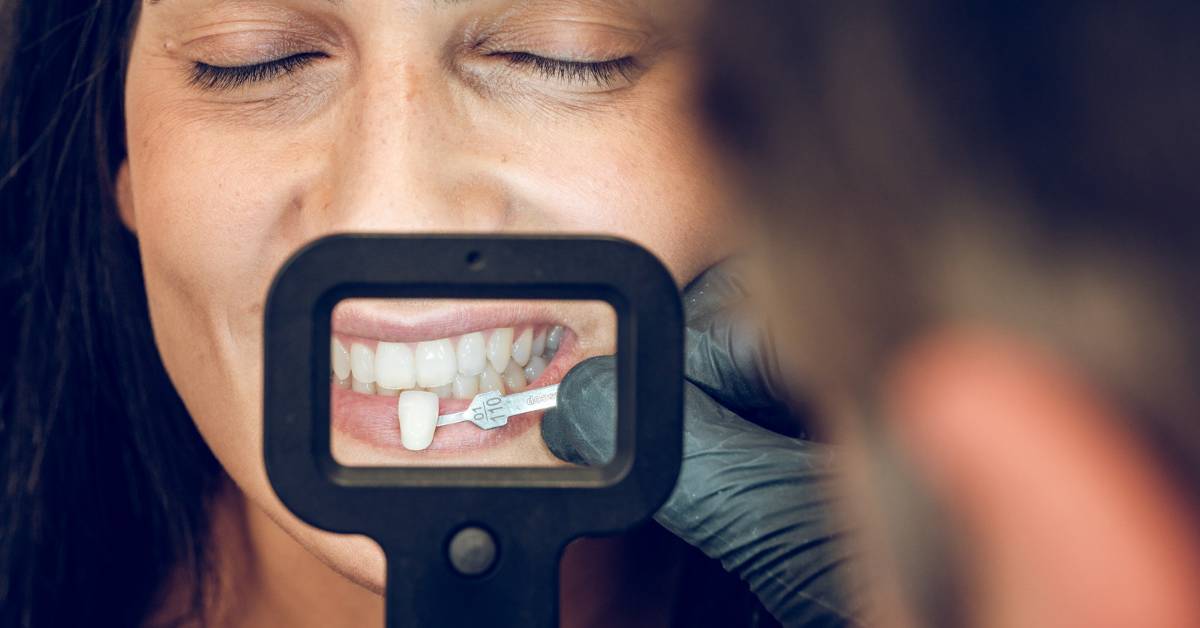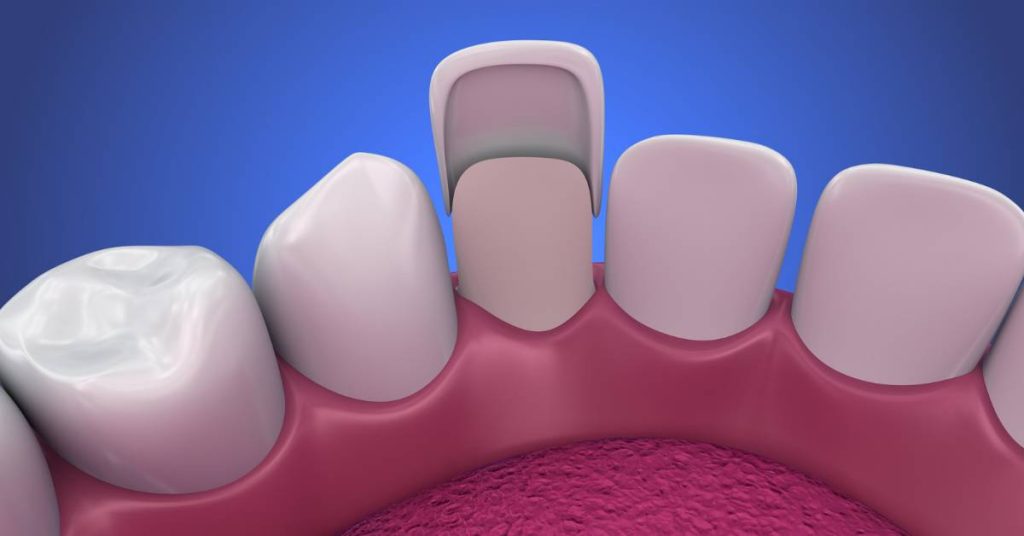
A smile is one of the first things people notice about each other, so it’s no surprise that many people opt for cosmetic treatments to improve their smile. Of all the cosmetic treatments available, veneers are one of the most popular. These thin shells made of porcelain or composite material are designed to cover up any imperfections in your teeth and provide you with a beautiful, natural-looking smile. Let’s take a look at some of the pros and cons of veneers.
7 Pros of Getting Dental Veneers

1.Durability

One of the biggest advantages of veneers is their durability. Porcelain veneers are especially strong, and can last for more than ten years with proper care and maintenance. While regular dental checkups and brushing twice a day are still essential for keeping your teeth healthy, porcelain veneers will resist staining from coffee, tea, and red wine better than natural teeth do.
2.Appearance
Veneers are also ideal for improving the appearance of your teeth if you have chips, cracks, discoloration or gaps between them. They can also be used to reshape crooked or misshapen teeth so that they look more aesthetically pleasing. With veneers, you can achieve a white and uniform set of teeth without having to undergo extensive dental procedures such as crowns or braces.
3.Relatively Painless Procedure
Getting veneers usually requires only two visits to your dentist’s office—one for preparation and one for placement—and the entire process usually takes less than two hours total. There may be some mild discomfort during the preparation process as your dentist shapes your tooth enamel to make room for the veneer; however, this process is relatively painless compared to other dental treatments, such as root canals or wisdom tooth removal.
4.Cost-Effective Solution
Compared to other cosmetic treatments such as braces or crowns, getting veneers is generally more cost-effective since it requires fewer appointments and involves less work overall. Additionally, if you opt for composite resin veneers instead of porcelain ones, then you could save even more money in the long run since composite resin is much cheaper than porcelain.
5.Time-Saving Solution
Getting veneers is a much quicker process than other cosmetic treatments. Porcelain veneers can be applied in just two visits, and composite resin ones can take even less time. This makes them an ideal solution for people with busy schedules who don’t have the time to go in for multiple appointments or wait months to see results.
6. Low Maintenance
Once they’re placed, veneers require very little maintenance aside from regular brushing and flossing. You may also need to visit your dentist every so often to make sure that the veneers are still intact and not showing any signs of wear and tear. Besides that, you won’t have to worry about special care or upkeep for your new smile.
7.Customizable Look
Veneers are very versatile and can be customized to fit the size, shape, and color of your teeth. Your veneers don’t need to be thick. This allows you to choose a look that best suits your facial structure and skin tone so you can achieve the smile you’ve always wanted with minimal effort.
Veneers offer an effective solution for improving the appearance of your teeth while being relatively painless and cost-effective compared to other dental treatments. Their durability ensures they will last longer than natural teeth will while resisting staining from food and beverages better too! If you’re looking for a way to enhance your smile without undergoing extensive dental procedures, consider getting veneers today!
7 Cons of Teeth Veneers
Veneers are popular for those looking to improve their smile and make cosmetic changes to their teeth. But, as with any dental treatment, there are risks associated with getting veneers. Here are seven reasons why you should think twice before getting veneers:
1.Cost
Veneers can be quite expensive, ranging anywhere from $500 to $2,500 per tooth. Additionally, insurance may not cover the cost of veneers since they are considered elective procedures. It’s important to weigh the cost of veneers against other possible treatments before making a decision.
2.Permanent Damage
Placing veneers requires shaving down your existing teeth in order to fit the new prosthetics into place. This process can permanently damage your existing teeth and make them more prone to decay and other problems in the future.
3.No Reversal Option
Once you’ve committed to getting veneers, there is no going back – once your natural teeth have been shaved down for the procedure, there is no way to undo that damage without further invasive procedures like crowns or implants.
4.Sensitivity
After placing veneers on your teeth, it is common for patients to experience increased sensitivity due to removing enamel during placement of the veneer prosthetics. This sensitivity can range from mild discomfort while eating or drinking hot or cold foods and beverages to serious pain long after consumption.
5.Allergies
As with any dental implant procedure, there is always a risk of developing an allergic reaction when having veneers placed on your teeth; this includes reactions caused by materials used in making the prosthetics or anesthesia used during placement surgery..
6.Maintenance Issues
Maintaining your oral hygiene becomes even more important when you get veneers; if not properly maintained, plaque and bacteria can build up around and underneath your veneer prosthetics which can cause decay and gum disease over time..
7. Poor Fit
Sometimes veneer prosthetics do not fit perfectly on top of existing teeth, leading to discomfort and pain while chewing or speaking . Additionally , if a poor fit causes gaps between two adjacent teeth , this could lead to infection over time.
Are they right fit for you?
Dental veneers are an increasingly popular option for those wanting to improve the appearance of their smile and can provide a more natural-looking solution than some alternatives. They require less invasive treatment than similar procedures and are easy to maintain and clean, making them a good choice for many people looking into a cosmetic procedure. One drawback is that they don’t change color – if your other teeth become stained, the dental veneer will stand out in comparison. Additionally, they can be prone to chipping and cracking, so extra care should be taken following treatment. In order to determine if dental veneers are right for you, it is best to discuss your options with a qualified dentist.
Frequently Asked Questions
If you get veneers, will you need dentures?
If you are considering veneers to improve and restore the beauty of your teeth, there is no need to worry about needing dentures. Veneers provide a relatively quick solution for common problems like chipped, gapped or discolored teeth, making them an excellent choice for many people. Veneers are thin pieces of porcelain that are bonded directly to the front surface of teeth, providing a beautiful and natural look without the need for dentures or other more intensive treatments. That being said, it is important to remember that veneers should only be done by a qualified professional dentist because incorrect placement can have lasting effects and require more costly treatments in the future.
Are veneers bad for your health?
Veneers are one of many treatment options that dental professionals may suggest to improve the appearance of the teeth. Veneers are designed to improve aesthetic qualities, and those studies have found that veneers have a moderate improvement in overall health benefits, such as improved confidence and social functioning. Although their primary purpose is to improve cosmetic appearance, veneers can also protect decaying or cracked teeth from further damage or decay. Recent studies have found that porcelain veneers are generally safe for most people and present no serious long-term health outcomes when used correctly and monitored closely by trained dental professionals. However, it’s important to discuss any potential risks or side effects with your dentist before obtaining any type of dental treatment.
Conclusion
Dental care decisions should never be taken lightly – it’s important that you weigh all options before deciding what’s best for you and your smile! If you decide that getting dental veneers is right for you, be sure to visit an experienced dentist who can assess whether they are a suitable solution based on your individual case and circumstances . With careful consideration , patience , and a bit of luck , you’ll soon be able find the right treatment plan that will give you a beautiful smile you have always wanted !







